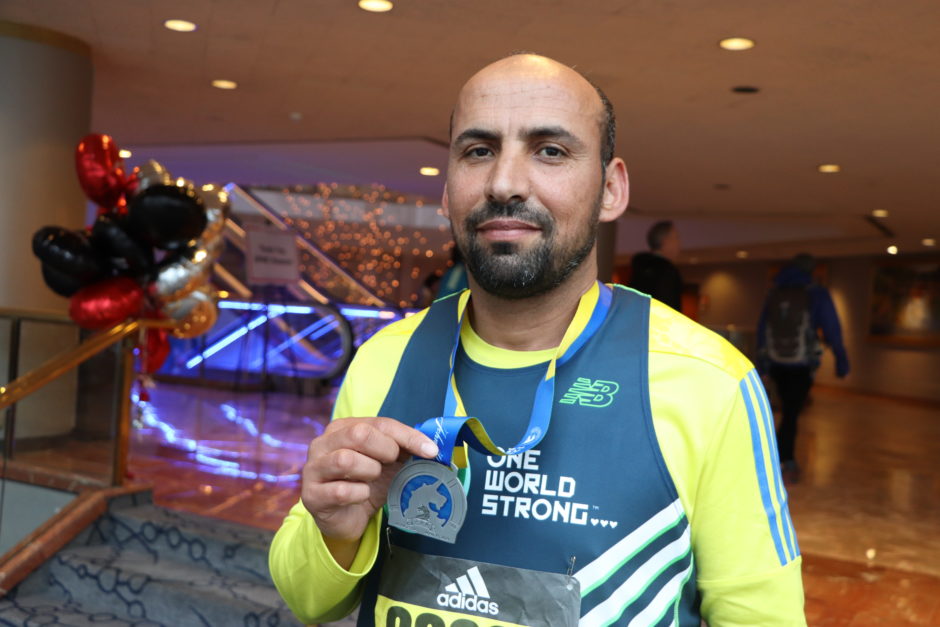Saïd Akjour has one passion that’s followed him throughout his life: running.
So when the 46-year-old was shot in the shoulder while praying at the Quebec City mosque in January 2017, it only took a few days before his thoughts returned to running.
“I thought, ‘I have to run the 2017 marathon.... This tragedy, this violence, won’t take something I love away from me.’”
Akjour was one of five men wounded in the mosque shooting.
The following August, he kept the promise he had made to himself.
His left arm still pinned to the side of his body, Akjour ran a 10-kilometre race in Quebec City, all the while thinking of the six men killed in the shooting who would never run again.
“I was thinking of the people who aren’t here anymore, those we lost at the mosque.
I was thinking of their families, their loved ones.”
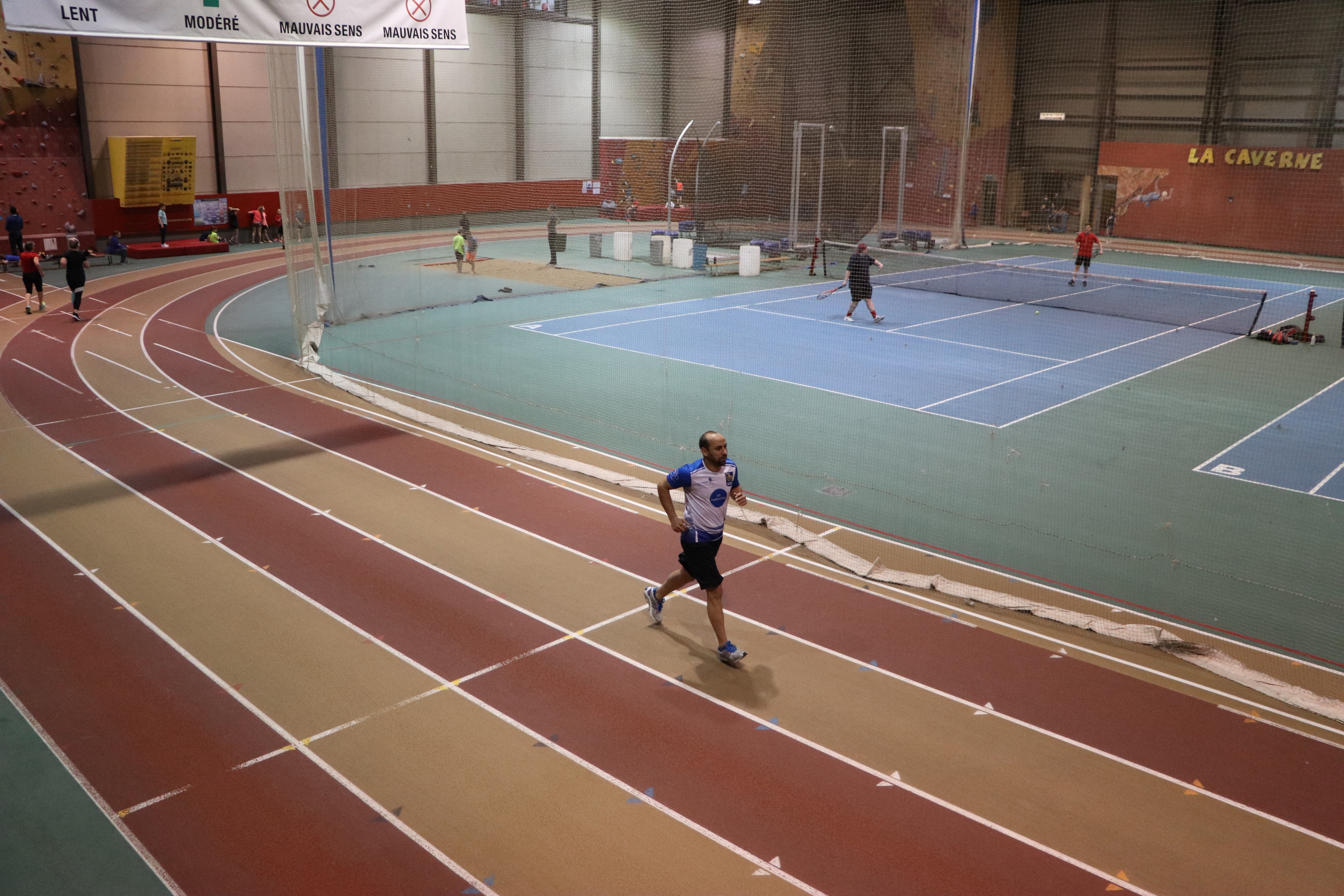
His passion for the sport meant when two bombs exploded near the finish line at the 2013 Boston Marathon, Akjour felt an instant connection to the victims. That year, he ran a 10-kilometre race in honour of the three people killed and more than 260 injured.
“This violence was meant to rob these people of something precious, to cut off their pleasure in life: their legs.”
Akjour never imagined that, a country away and years later, he too would become a target of hate.
‘Would you like to run?’
The attacks in Boston and Quebec City united their survivors.
On the anniversary of the mosque shooting, in January 2018, survivors of the Boston bombing travelled to Quebec City as part of the One World Strong Foundation (OWS), which was founded in the wake of the terror attack.
The organization connects victims of terrorism from around the globe.
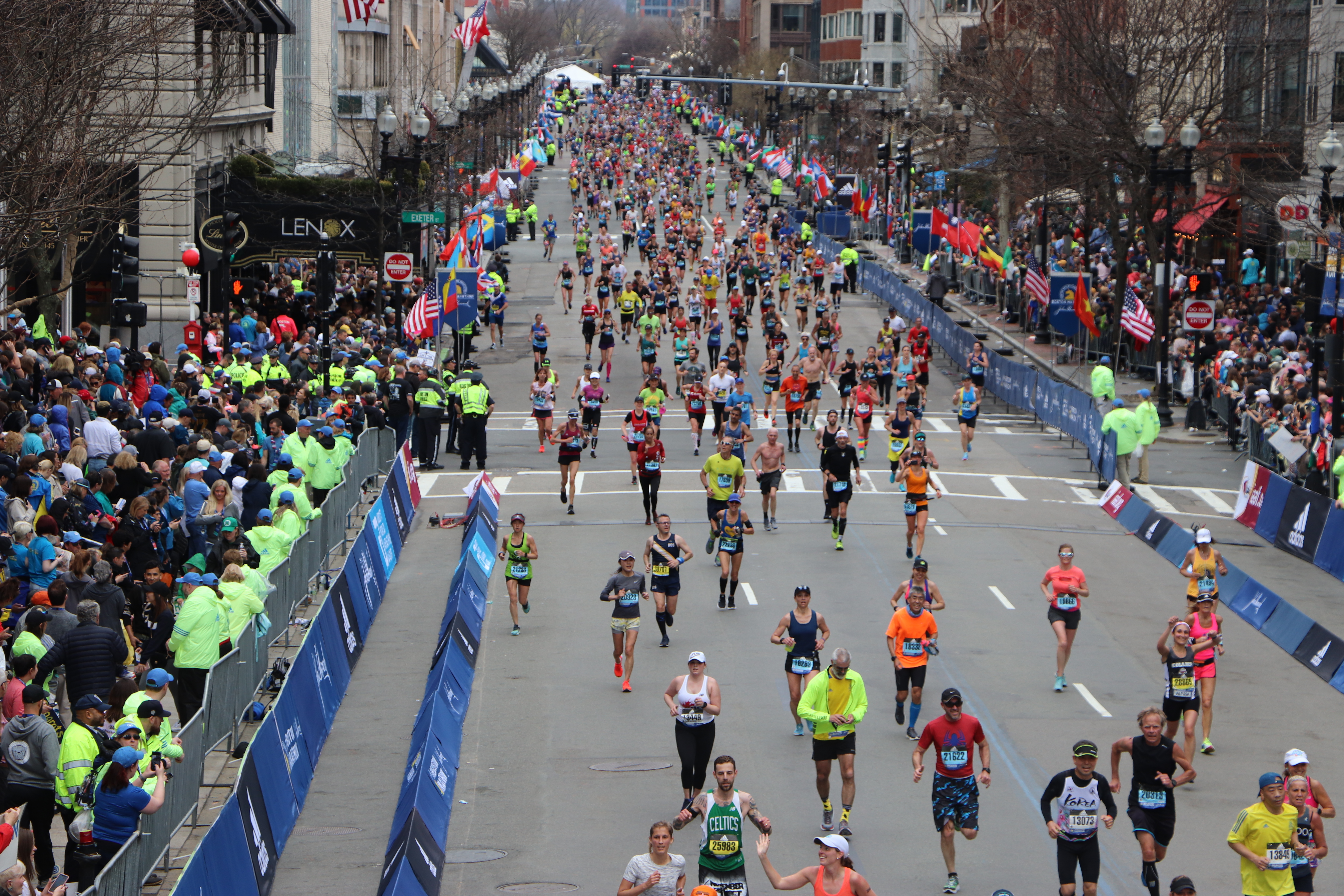
Co-founder Dave Fortier remembered how that day, Akjour brought medals of his past races.
This prompted the Bostonian to ask the big question.
“‘Would you like to run the Boston Marathon with us in 2019?’” Fortier recalled.
Akjour said he was game. Fortier knew it was one thing to say yes — and quite another to follow through.
“But I knew it in my heart that he would do it.”
Thee OWS trip to Quebec City was also life-changing for other survivors.
Hakim Chambaz had witnessed the massacre inside the mosque, seeing two old friends die just steps away from him.
Gripped with nightmares and flashbacks in the year that followed, Hakim describes that period as “the most difficult” of his life.
“We spent a lot of time hiding from the media, hiding from everybody.”
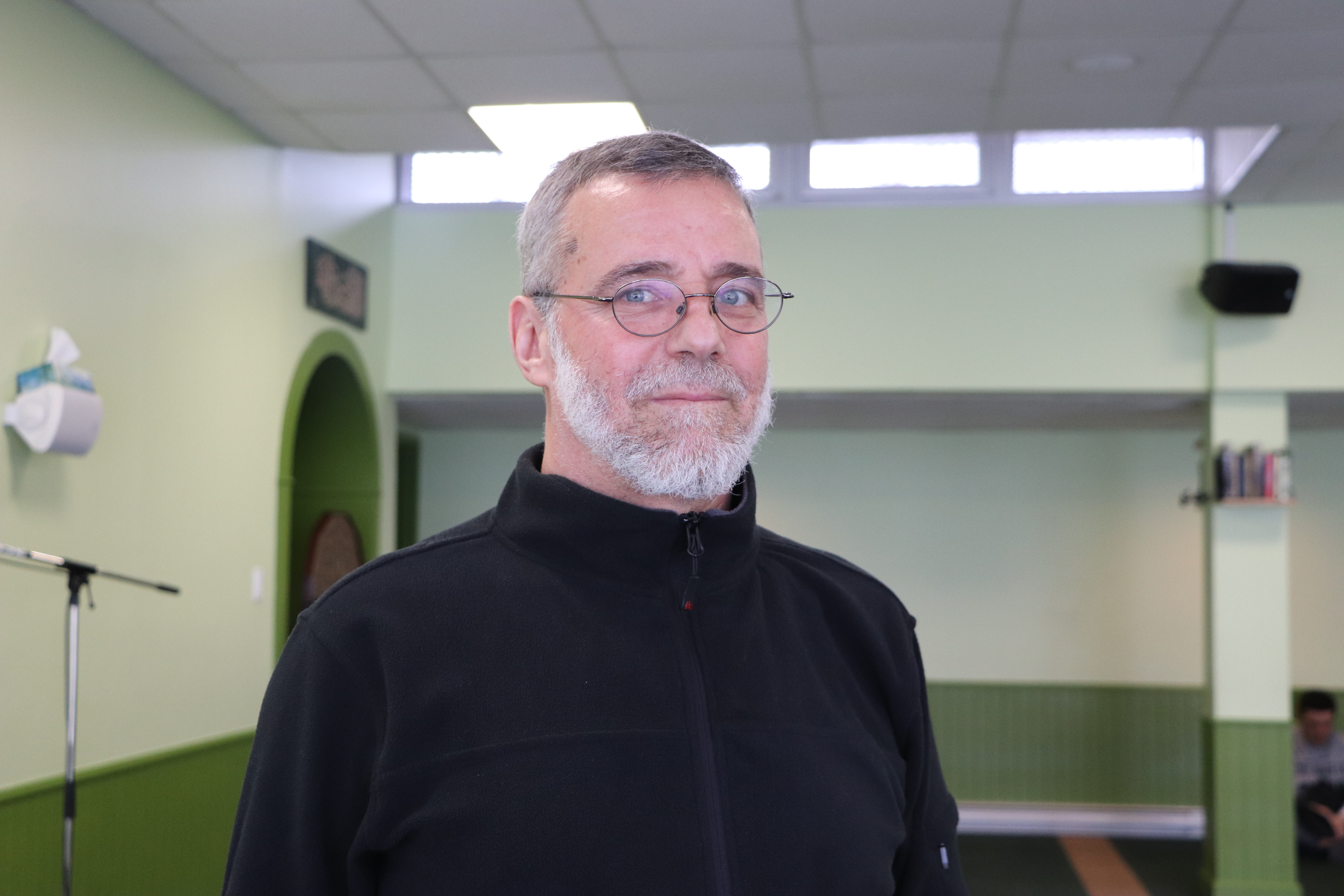
Like many others, Chambaz found comfort in meeting Fortier and other survivors from Boston.
“These people had come such a long way to meet us, in the middle of January — and you know how January is in Quebec City,” Chambaz said.
For the 56-year-old, meeting Celeste Corcoran, who lost her legs in the Boston bombing, was eye-opening.
“I thought to myself, ‘I have my health. I can practise sports, and yet she is the one who has come so far to visit me.’”
That thought gave Chambaz the push he needed to start taking trips of his own.
He travelled to Parkland, U.S., after the 2018 school shooting, and to London, England, where he met victims of the 2005 subway bombing.
Paying it forward
Chambaz discovered on those trips that sometimes all a person needs is someone who can sit with them, in silence, knowing they can truly relate to their pain.
They have also given his own survival a sense of purpose.
One week after last fall’s shooting at the Tree of Life synagogue in Pittsburgh, Chambaz and two friends, Abdelhak Achouri and Ahmed Cheddadi, drove 14 hours to offer comfort to the Jewish community.
“They were shocked, in a good way,” said Cheddadi.
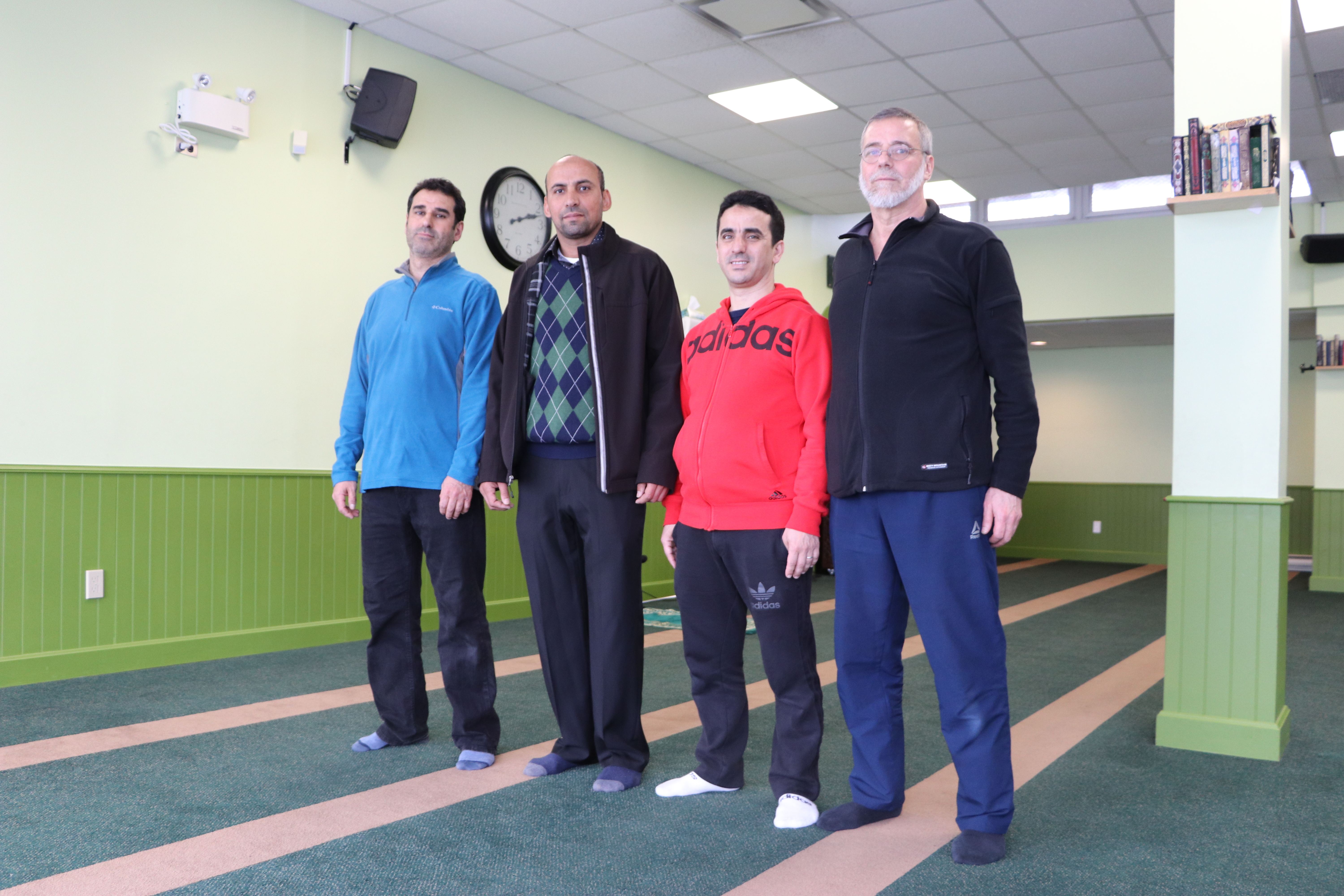
In the months that followed the mosque attack, Cheddadi, a father of three, struggled with severe anxiety attacks, consumed by fear that someone would target him once more.
Along with the professional help he received to overcome his trauma, he considers the connections he’s made through OWS to be “the best therapy for us.”
It only made sense that the next road trip for the four of them would be to Boston, to watch and cheer on Akjour in the marathon.
“I am very happy because I feel that I am doing something,” Cheddadi said. “I am in action. I am participating in something great.”
For Achouri, the trip to Boston was about more than supporting Akjour in the 42-kilometre race — it was also a chance to represent Quebec City on the world stage.
“We want to present this image of Quebec to the world. It cannot be defined as a place of extremism,” said Achouri.
- Listen to Julia Page's radio documentary for The Sunday Edition, A second wind.
On your marks
The men carried that message all the way to the finish line.
The day before the race, the four Quebecers joined thousands of Bostonians out for the long Patriots’ Day weekend, strolling along Boylston Street where the marathon ends.
They held a minute of silence in front of the memorial being built for the 2013 victims, holding up the signs they had brought along, denouncing racism and violence.
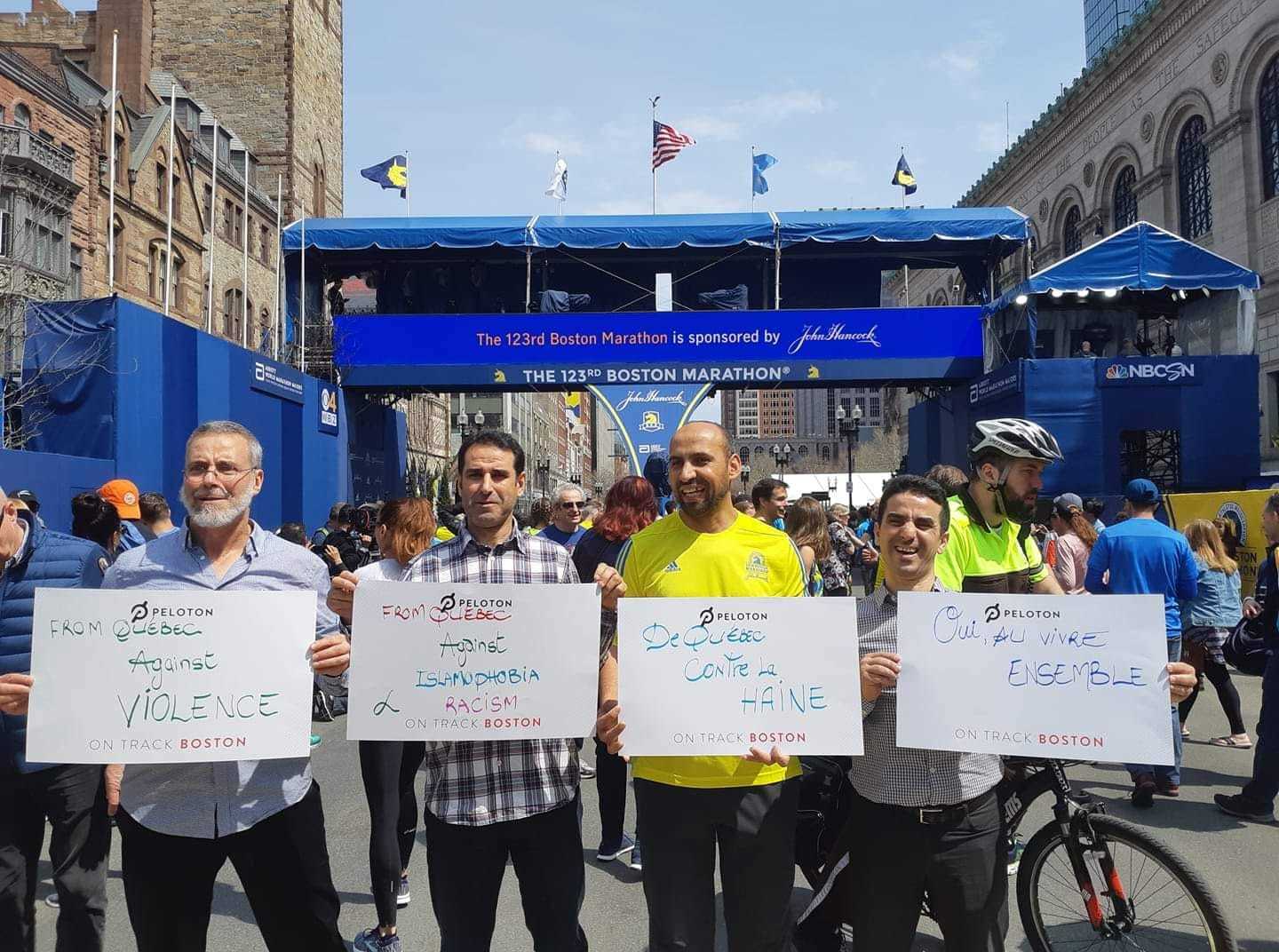
The next day, an early morning downpour left fields of mud around the athletes’ village in Hopkinton, on the outskirts of Boston.
Nearly 30,000 runners arrived at the start line, many wearing plastic bags, or whatever they could find, to stay dry.
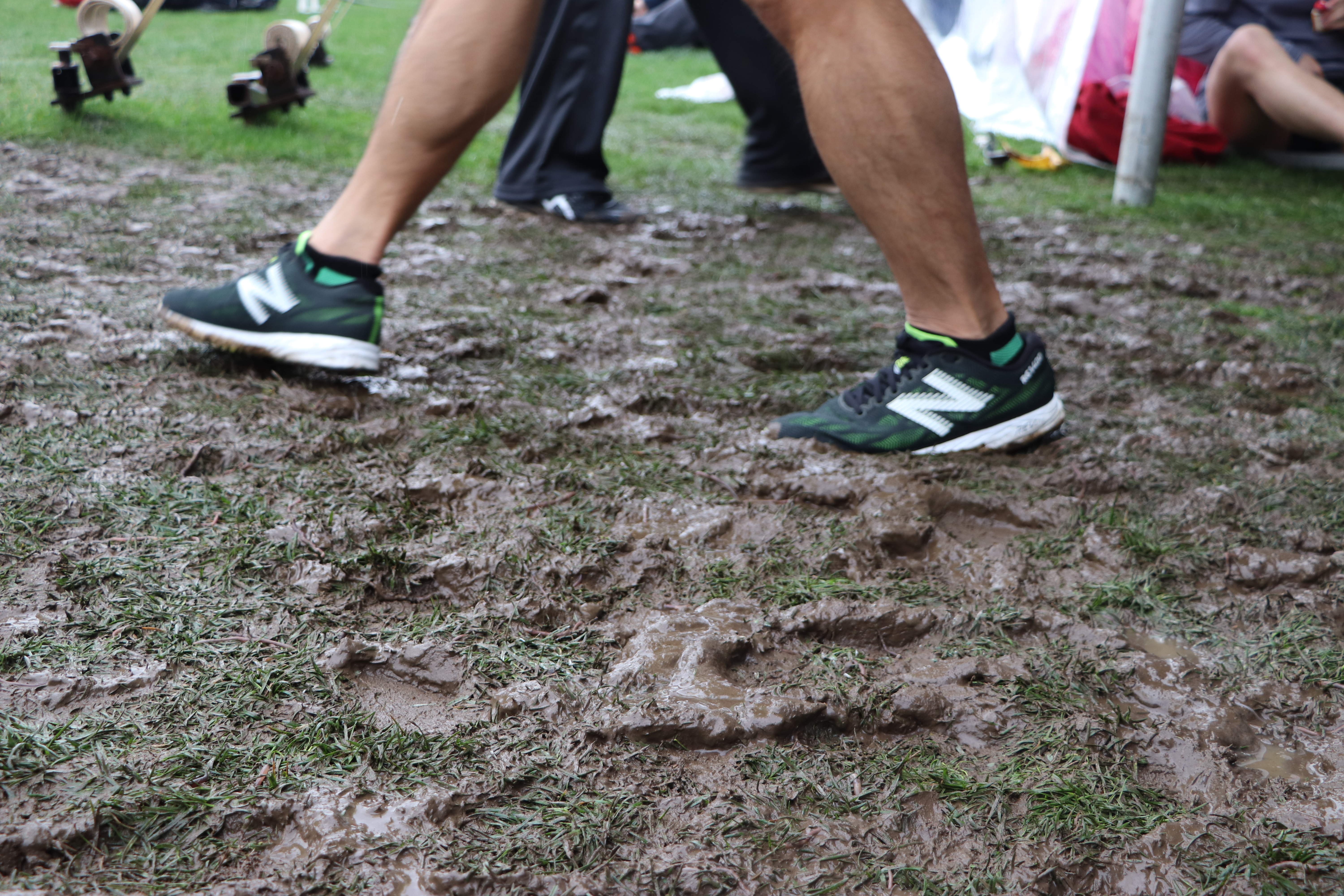
Akjour was in the last wave and managed to stay out of the rain, which had stopped by the time he started running, just after 11 a.m.
“I can already see the finish line,” he said.
Four hours, 27 minutes and 16 seconds, and 42.2 kilometres later, he was there.

Making new memories
The gruelling Boston race now behind him, Akjour is already looking forward to his next marathon — Quebec City in August, and if that goes well, perhaps Montreal in September.
“It’s true that you have to make an effort. Taking that first step is always difficult,” Akjour says.
“But once you find your rhythm, once you get that second wind, running is such a pleasure.”
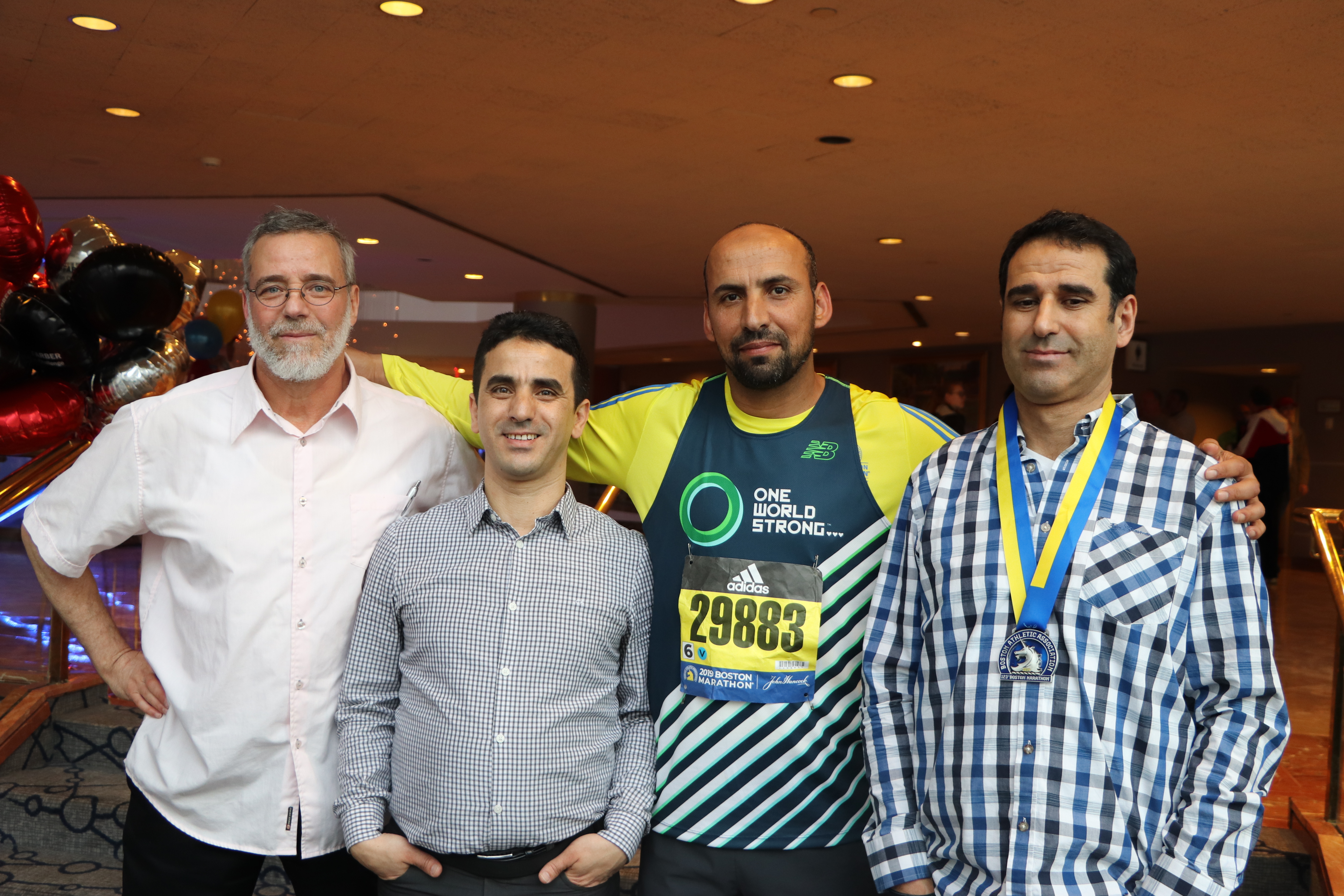
Taking pleasure in life again is becoming easier for the mosque attack survivors.
Back in Quebec City, just four days after the Boston marathon, the four friends attended Friday prayers at the mosque — the same mosque where the shooting happened.
On this Friday, parents laughed as they watched their children run around the room on a day off from school.
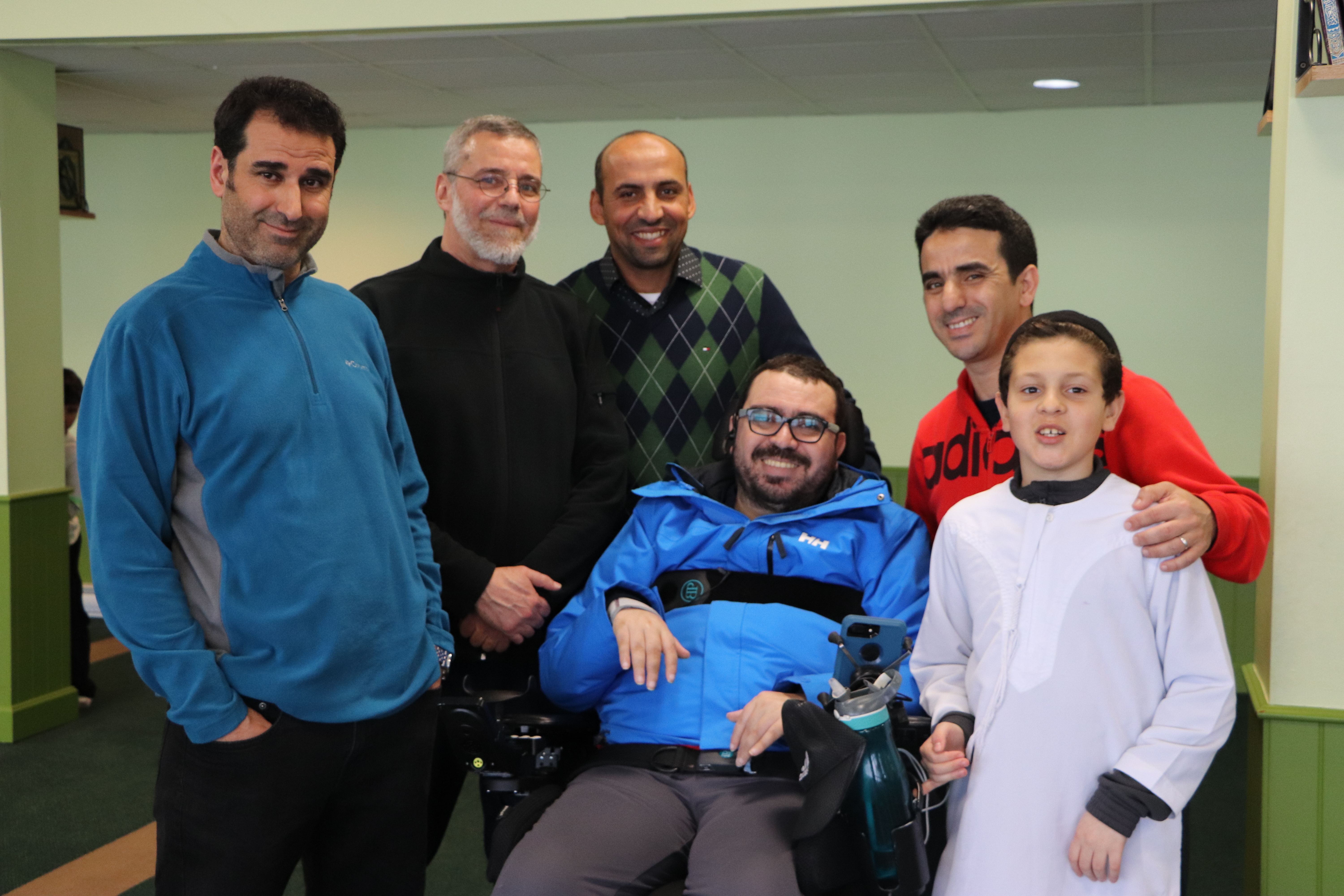
It took Cheddadi several months to return here, but now he is the one who tells others: “You have to go back.”
That’s the message he and his three friends hope to take to the Muslim community in Christchurch, New Zealand, where 50 worshippers were gunned down last March.
“You have to go back,” and begin living again.
